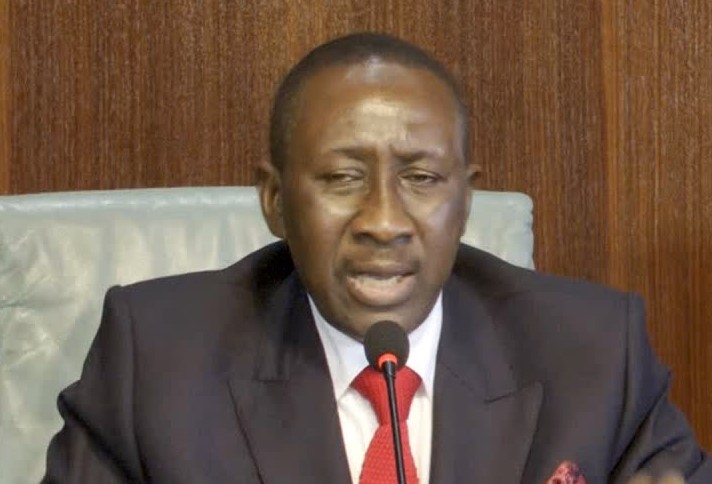The National Security Adviser (NSA), retired Maj.-Gen. Babagana Monguno, says crude oil theft is arguably the biggest threat to Nigeria’s economy currently.
Monguno said this at the at the Stakeholders’ Conference on Oil Theft and Losses in Nigeria, convened by the Special Investigative Panel on Oil Theft/Losses in Nigeria on Tuesday in Abuja.
The theme of the conference is, “Protecting Petroleum Industry Assets for Improved Economy.”
The NSA had, in December 2022, inaugurated an 11-man special investigative panel to probe oil theft in the Niger Delta region of the country.
He said the initial concerns of oil theft in the country dated back to the early 80s, saying the situation had developed to a more pronounced and disturbing level in recent times.
According to him, the criminals have now increased the level of sophistication considering the various methods they employ to tap primary pipelines with illegal secondary pipelines to load on barges and sell to international collaborators, or to process locally for illicit domestic sale.
Monguno said the attacks on oil producing facilities had led to several shut downs, and in some instances declaration of force majeure by some International Oil Companies in the country.
This, he said, had resulted in loss of revenue and by implication negated the capacity of government to generate the required resources to fulfil its statutory responsibilities to the citizenry.
“Currently, crude oil theft is arguably the biggest threat to Nigeria’s economy.
“Its socio-economic impact includes environmental degradation, health hazards and disruption in economic activities of the host communities amongst other concerns.
“Permit me to state that the recent discovery of an illegal pipeline connection at kilometre 4, on the Trans-Escravos Pipeline, Yokri Community in Burutu Local Government Area of Delta State, was the tipping point which prompted the Federal Government to institute a 10-man special Investigative panel.
“This discovery further brought to the fore some seeming gaps in the security arrangement and frameworks for securing the oil and gas infrastructure in the country.
“Unfortunately, it is these identified gaps that are being exploited by criminals and economic saboteurs to undermine our national security,” he said.
The NSA said the recent interceptions by security agencies at various loading platforms as well as illegal activities of artisanal refiners suggested that the problem was not insurmountable and was gradually being addressed.
He added that addressing crude oil theft required strong interagency collaboration with the relevant stakeholders such as the security agencies, NNPC, IOCs and the local communities.
According to him, it may also require regional and international collaboration due to the transnational nature of the threat to provide a more comprehensive approach by integrating all the necessary stakeholders.
Monguno said the security agencies, particularly the Nigerian Navy, had embarked on series of intelligence driven maritime security operations to curb the issues of oil theft and illegal oil bunkering in the Niger Delta area.
He added that Falcon Eye System – a high tech real-time intelligence Maritime Domain Awareness facility domiciled with the Nigerian Navy and coordinated by the ONSA had been fully committed to addressing the emerging concern.
According to him, the facility has between August 2018 and January 2023 facilitated the prosecution of over 200 vessels involved in maritime criminality within Nigeria’s Exclusive Economic Zone (EEZ) up to the Republic of Togo.
“In addition, 83 oil tankers involved in various crude oil and product theft have been arrested, while the theft of over three million barrels of crude oil was prevented and 11 million litres of petrol and diesel were recovered.
“Recent commendations from the International Maritime Organisation (IMO), European Union and United Nations Office on Drugs and Crime to Nigeria on its efforts in reducing maritime criminality in the Gulf of Guinea and successful prosecution of pirates in the region are quite instructive.
respective organisations faced in securing our nations oil assets and combating oil theft.
“These and several other government agencies availed the panel memoranda and documents, which have also proved useful to the panel,” he said.
The chairman said the conception of the conference was part of the panel’s strategy to obtain additional inputs, information and data on the subject matter to consolidate on what had been achieved so far. (NAN)









